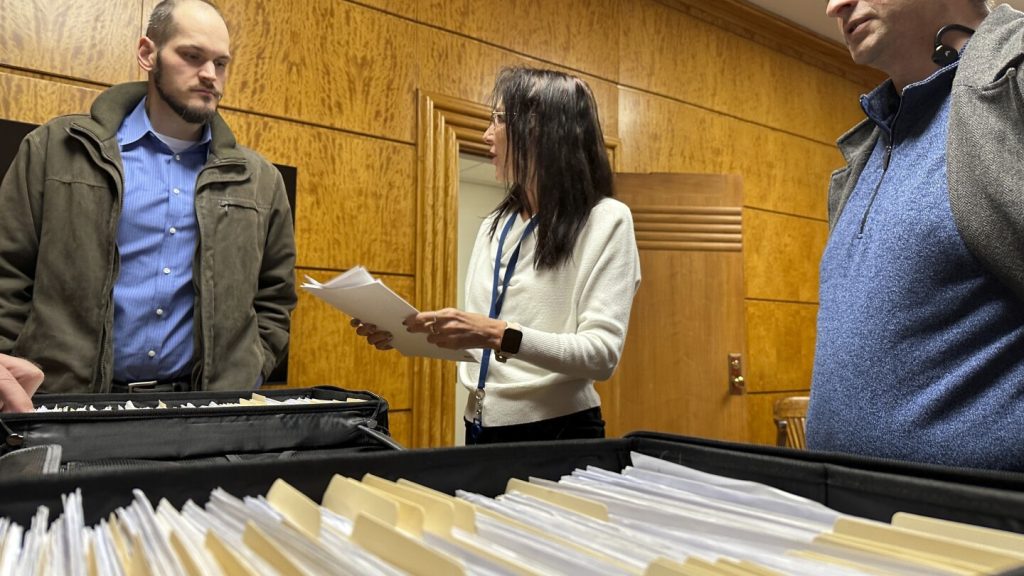North Dakota voters have approved a ballot measure that imposes an age limit on individuals running for Congress, prohibiting those aged 81 or older from seeking office. Legal scholars believe that this law may stand unchallenged due to the lack of candidates willing to challenge its constitutionality. The measure is seen as a potential test case for revisiting a Supreme Court ruling from 1995 against congressional term limits. This initiative comes at a time when the ages of elderly officeholders, such as Joe Biden and Donald Trump, have been under scrutiny in the political landscape.
Experts believe that the age limit may remain in effect until someone with standing chooses to challenge it. David Schultz, a professor of political science and law, views the measure as unconstitutional based on the 1995 term limits decision. Potential challenges could come from individuals barred by the age limit from running, or from political parties seeking to nominate older candidates. Parties could file a lawsuit if they believe the measure infringes on their rights, but they would need to prove harm caused by the restriction.
The measure is set to take effect immediately, pending certification of election results. Independent candidates have until September to file signatures for the 2024 general election, potentially leading to the denial of an age-barred candidate. Any legal challenge would likely make its way through the federal court system, with significant financial costs involved. The measure presents a challenge for both its proponents and opponents, as it raises questions about the constitutionality of imposing an age limit specifically for federal officeholders.
It remains unclear who may step forward to challenge the age limit, as outside groups and constituents may hesitate to get involved in the legal fray. The initiative’s supporters chose 80 as the maximum age limit due to overwhelming support at that age. A federal lawsuit could take years to resolve, but past cases have shown that courts can move quickly on issues related to ballot access and candidate qualifications. Some legal experts suggest that potential challenges would be based on the effectiveness of elderly congressmembers and whether the age limit violates equal protection rights.
Amidst the potential legal challenges, U.S. Senator Kevin Cramer, who opposed the measure, criticized it for limiting voter choices and the principles of self-governance. The measure’s sponsor, Jared Hendrix, expects a challenge but acknowledges that it would depend on finding someone with standing. The measure’s impact on North Dakota’s upcoming elections and potential ramifications on future political campaigns remain uncertain, as it creates a new precedent in regulating candidate qualifications based on age.


